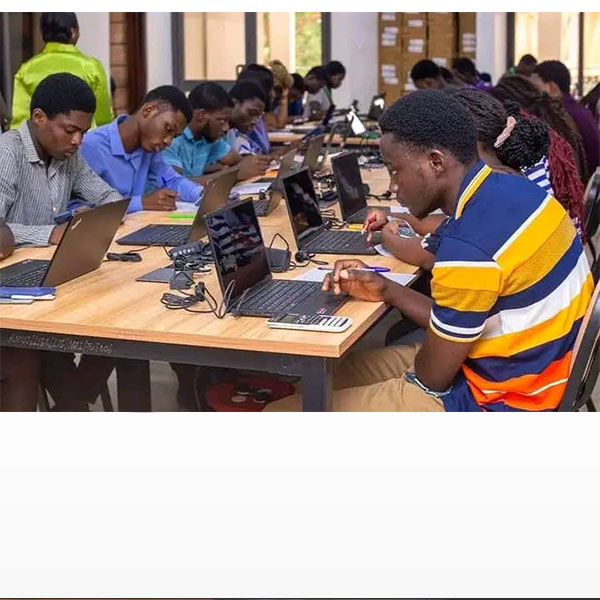This semester, the Kwame Nkrumah University of Science and Technology (KNUST) has taken a historic leap, moving over 41,700 students onto computer-based examinations more than double last year’s figure of under 20,000. With more than 100 courses now assessed digitally, KNUST has become Ghana’s largest hub for computer-based testing.
The university has backed this transformation with significant investment: 11 dedicated computer labs, an expanded Library Mall exam center accommodating nearly 470 students at once, and the introduction of biometric verification, randomized question sets, and reliable backup systems to guarantee fairness, security, and access.
But what is happening at KNUST is more than just a technology upgrade it is a cultural shift that Ghana can no longer ignore.
For decades, handwritten answer booklets have dominated Ghana’s universities. In 2025, this is no longer just outdated it is dangerous. In a world where banking, healthcare, governance, and trade are powered by digital systems, our brightest students are still being assessed with pen and paper, as if the digital revolution skipped our campuses.
The consequences are real. Paper-based exams slow down grading, limit innovation in assessment, and fail to prepare graduates for the digital workplaces they are expected to thrive in. KNUST’s bold step shows that excuses are no longer valid. It can be done and it must now be done everywhere.
A National Call to Action
The responsibility cannot rest on KNUST alone. The government, Ministry of Education, and all stakeholders must step up.
-
Infrastructure support must extend across all public universities.
-
Lecturers and students must receive training to adapt to new systems.
-
Device support schemes must be created for students who cannot afford personal laptops or tablets.
-
Partnerships with EdTech companies must be explored to scale and sustain the digital exam model nationwide.
The Benefits Are Clear
Computer-based testing is faster, fairer, and more secure. It slashes the costs of printing thousands of booklets, protects the environment, and aligns Ghana with international standards. Most importantly, it ensures that students are assessed in ways that reflect the digital environments they will face in their careers.
The risk of inaction is stark: if universities fail to modernize, Ghana will produce graduates who may be brilliant on paper but ill-equipped for a digital future.
The Time Is Now
KNUST has lit the torch. The path forward is clear. The rest of Ghana’s universities must follow — not in five or ten years, but immediately. The government must invest, institutions must adapt, and students themselves must demand this change.
Because the truth is simple: the world is digital, the future is digital, and Ghana cannot afford to be left behind.






This is very insightful and informative.
By using temporary number you can quickly and conveniently receive SMS without having to use a personal number.
The process of receiving SMS online is gaining popularity among users.
great idea
Great
can this be implemented in all schools
good initiative
nice one
bim bim… this is good
go KNUST
great idea
beautiful
i love this
THIS IS AWESOME IN GHANA
great move
great initiative
this is good news
technology on high at KNUST
Ghana is moving digital
KNUST leads the way
this is brilliant